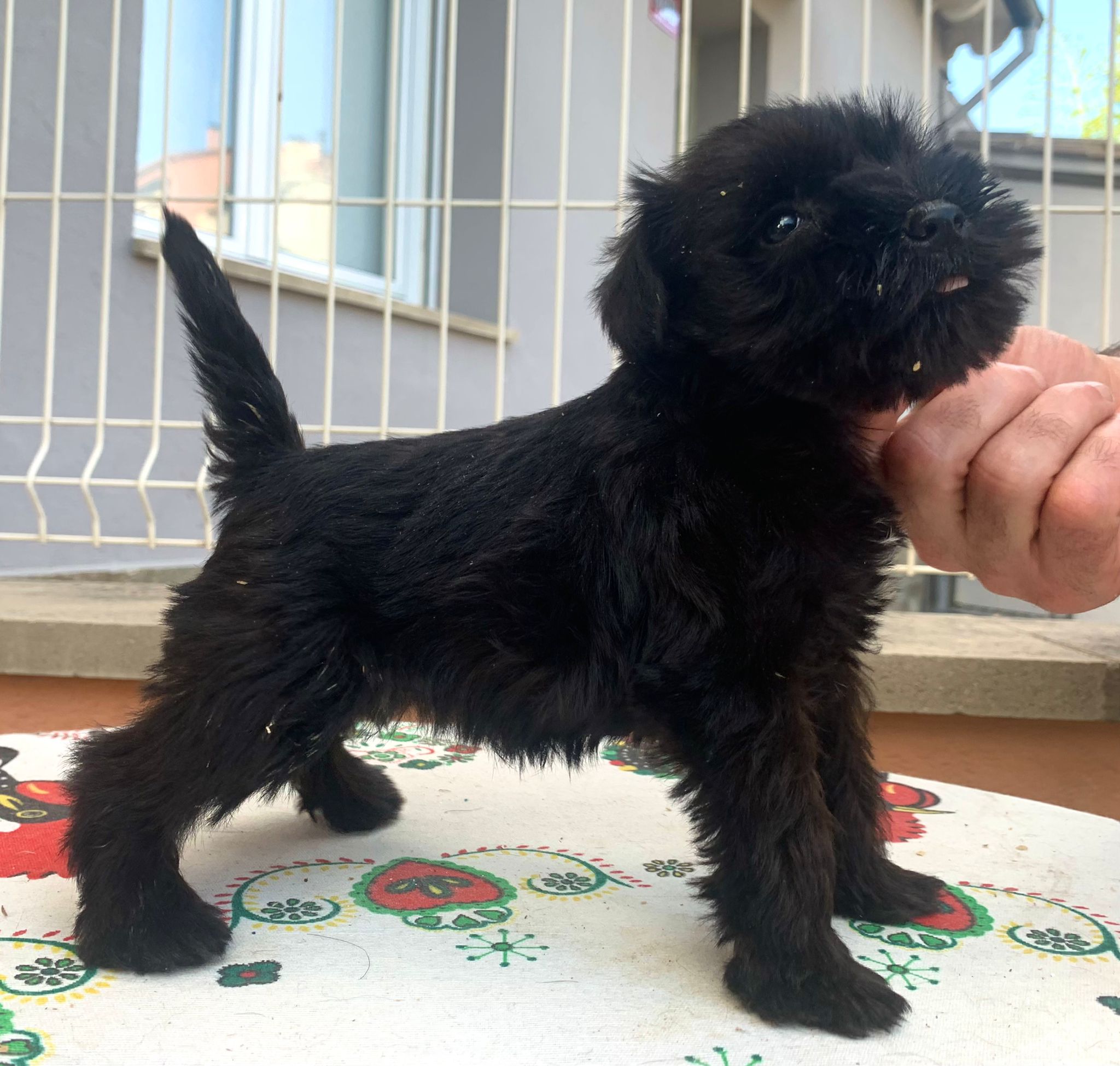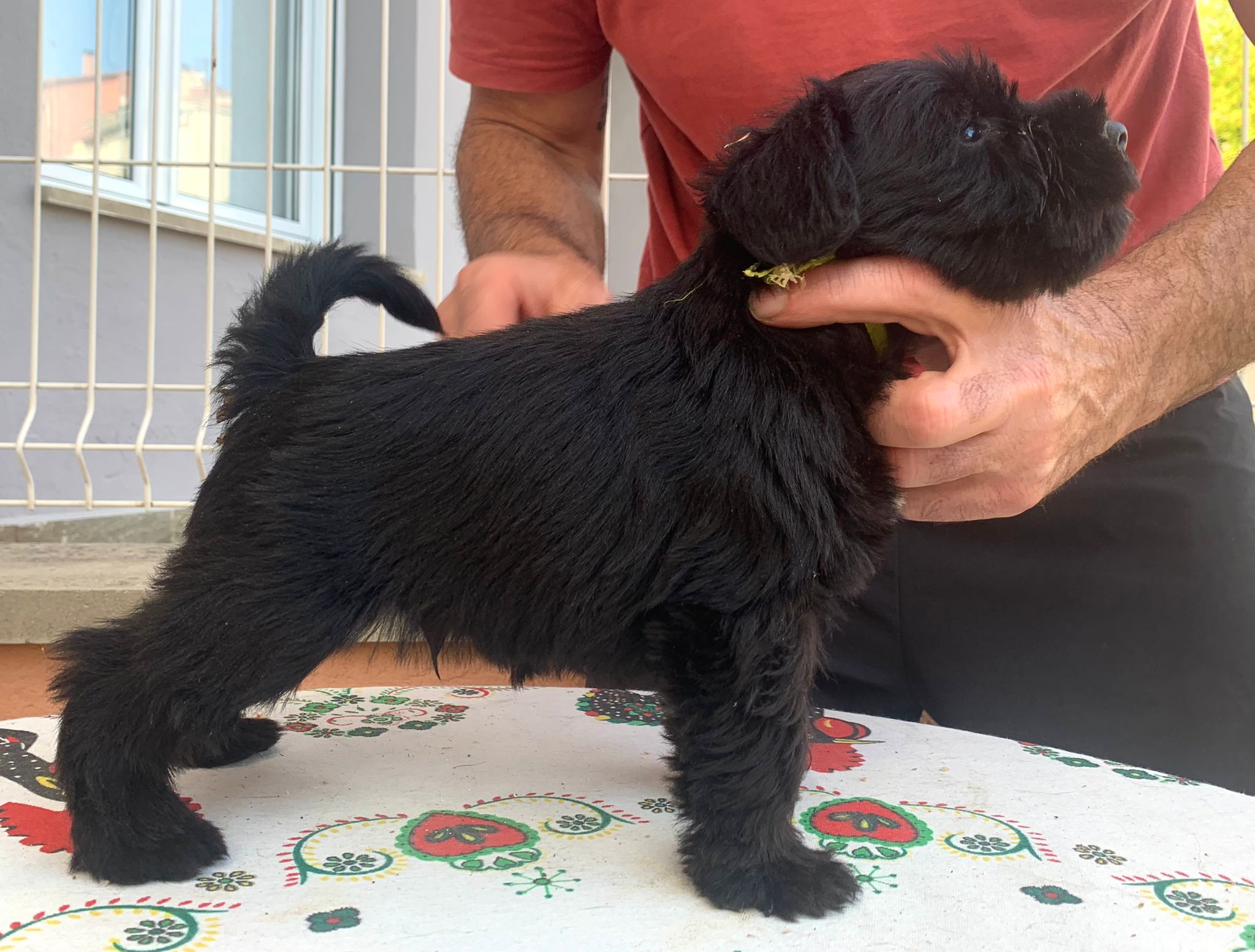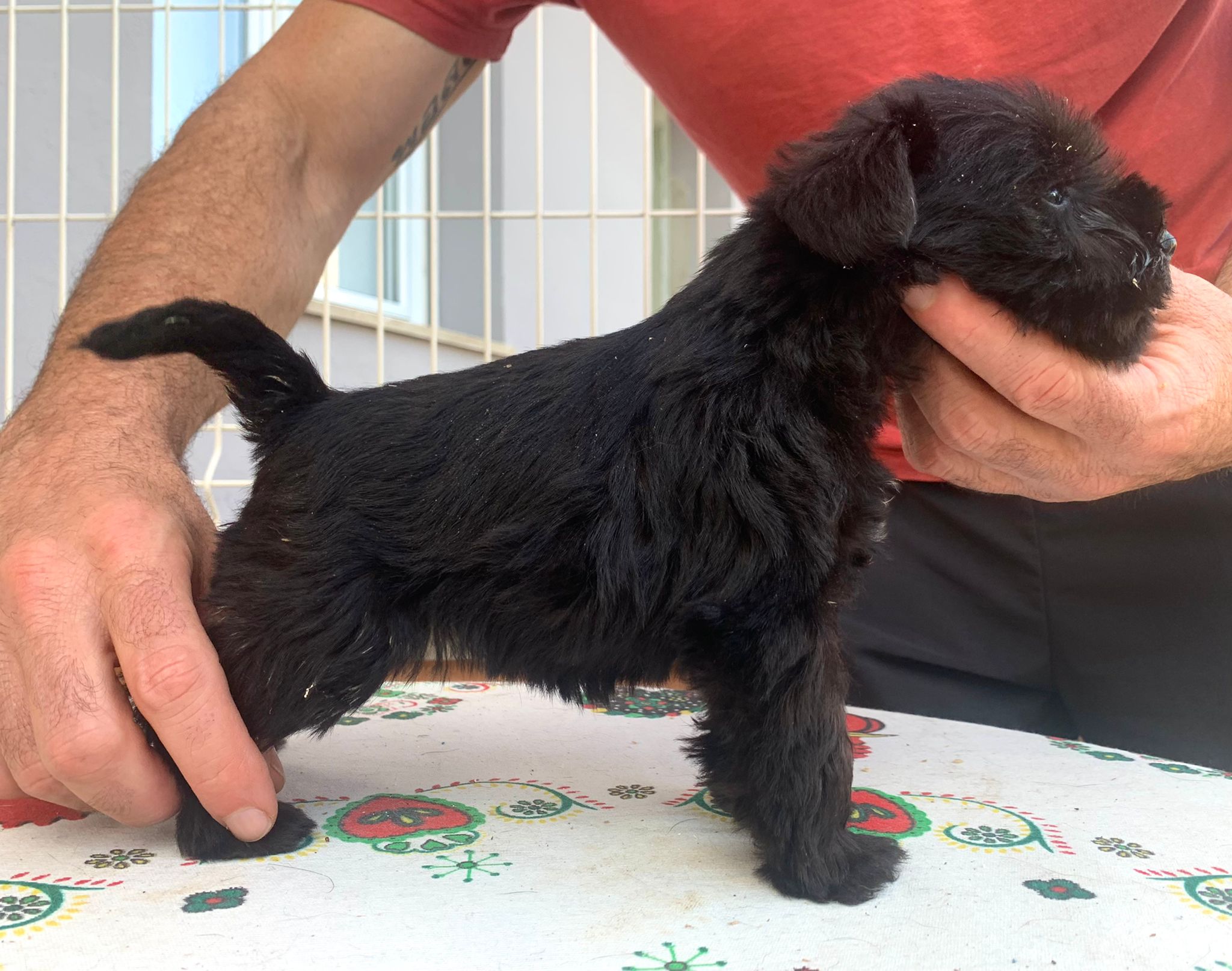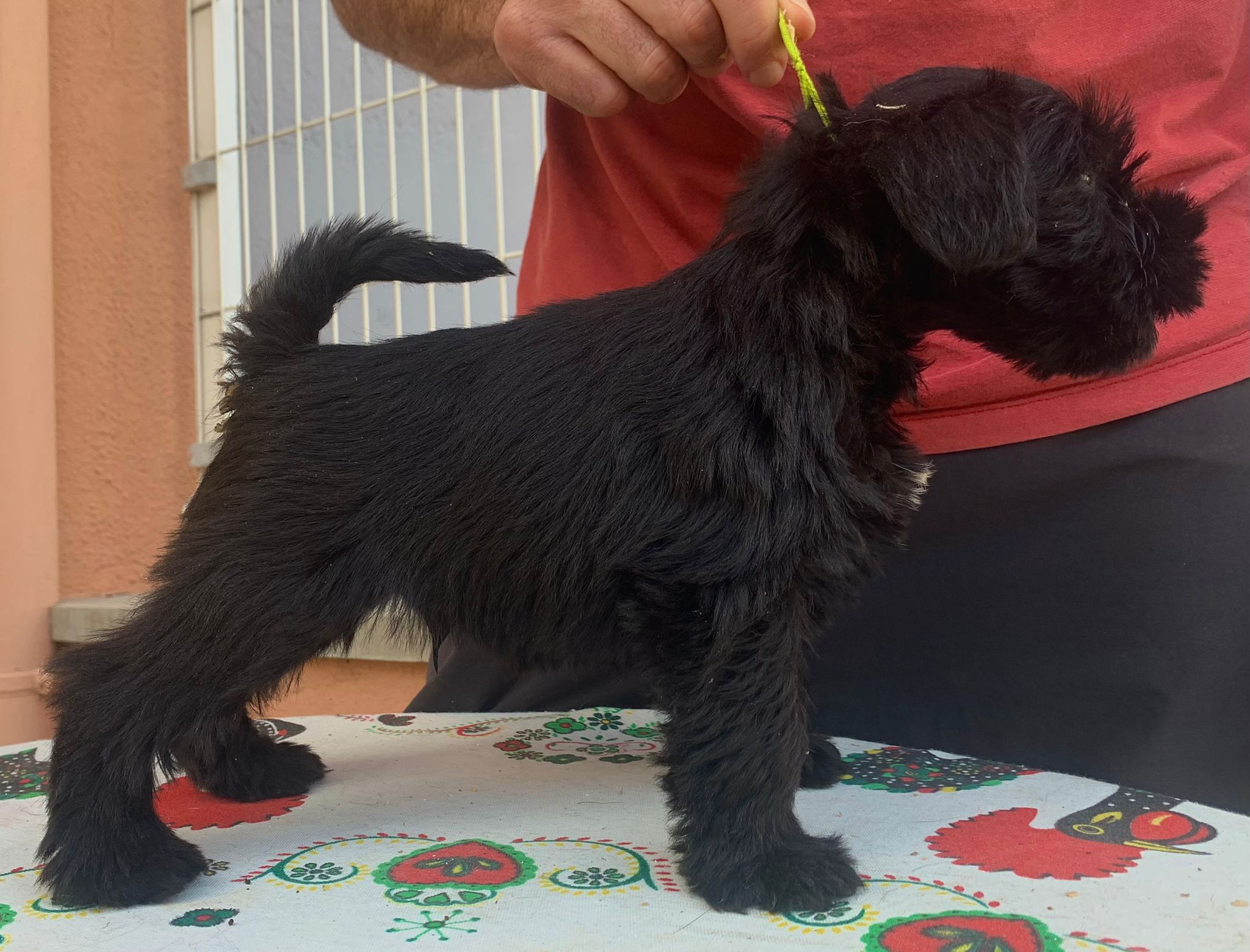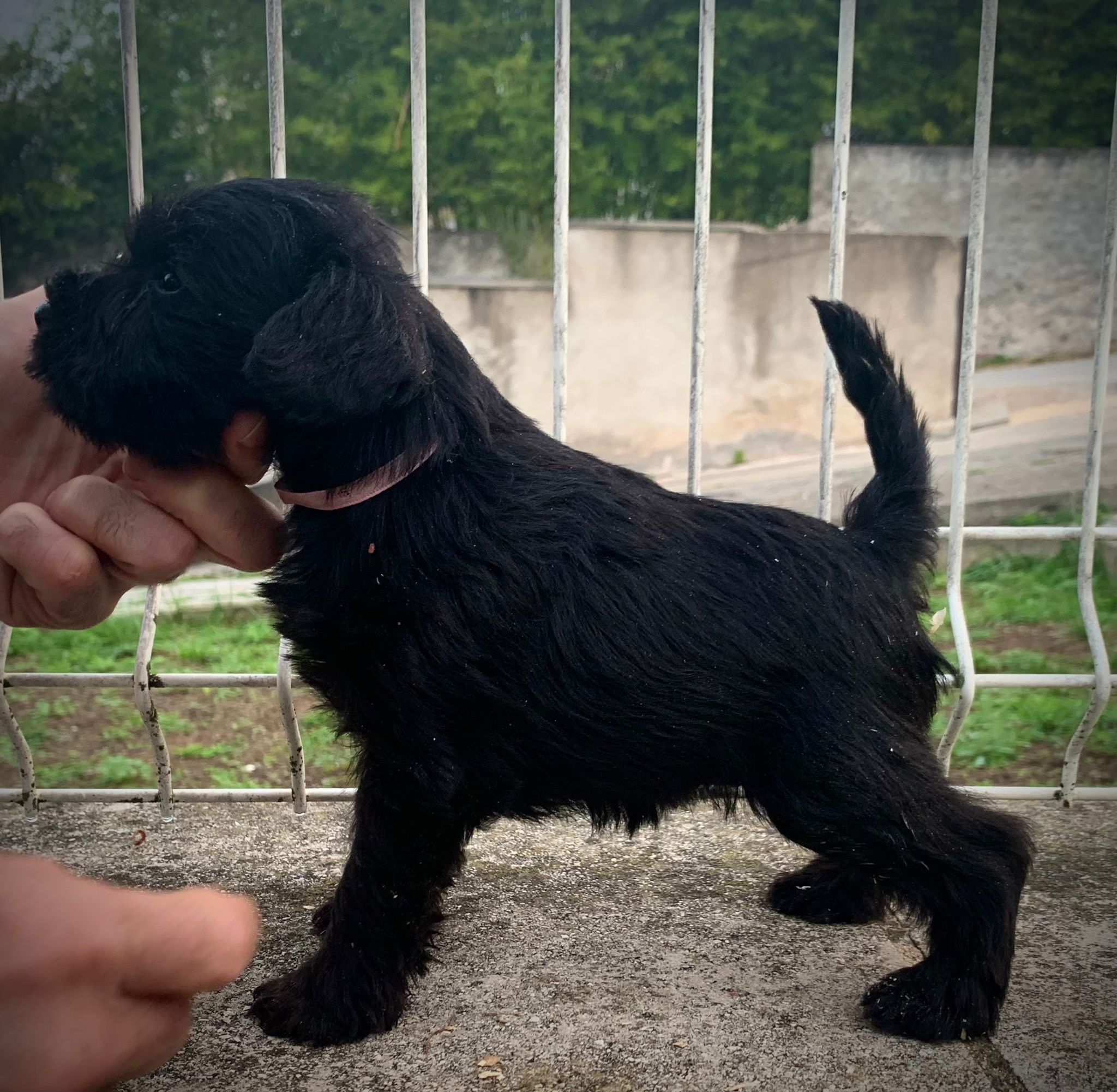Call us: 0034-690691424
HISTORY AND ORIGINS OF
SCHNAUZER
MINI
DISCOVER THE ESSENCE OF THE SCHNAUZER MINI: ORIGIN, HISTORY,
VARIETIES AND TYPES IN RADIKALDOGS YOUR DOG CENTER
Roots and Development of the Schnauzer Miniature: A Journey Through Their Origins and Evolution
Origins of the Miniature Schnauzer:
The Miniature Schnauzer is a breed of dog that originated in Germany in the mid-19th century. It was developed from selective crosses of Standard Schnauzers with smaller breeds, such as the Affenpinscher and the Poodle. The goal was to create a miniature version of the standard Schnauzer that would be a smaller, more compact companion dog.
The Miniature Schnauzer was primarily developed in the Bavaria region of Germany and was initially bred to work as a rat catcher and farm dog.
Modern History of the Miniature Schnauzer
The fascinating history of the Miniature Schnauzer:
The meticulous genetic selection of German breeders gave rise to this miniature version, preserving the tenacity and hard-working nature of the standard Schnauzer. His name, which means "moustache" in German, refers to the distinctive beard that adorns his snout, contributing to his unique image.
Over time, the Mini Schnauzer gained popularity not only for its practical skills, but also for its versatile personality. His intelligence and loyalty made him a valuable companion to families and farmers alike. These little guardians won the hearts of people, not only for their usefulness but also for their friendly temperament.
Today, the origins of the Miniature Schnauzer continue to influence its character. Although he is now best known as a beloved pet and loyal companion, his working dog lineage is still present in his active disposition and love of interaction with his human family.
Miniature Schnauzer: A Tour of its History and Development
The story of the Miniature Schnauzer is a captivating tale that covers his evolution from a diligent farm worker to a beloved companion in homes around the world. His enduring charm and emotional connection with people continue to solidify his position as one of the most beloved and versatile dog breeds.
Modern History of the Miniature Schnauzer:
As the 20th century progressed, the Miniature Schnauzer established itself as an appreciated and versatile dog breed. His outstanding intelligence and playful disposition not only made him an exceptional companion, but also earned him recognition in the world of dog shows and competitions.
The modern history of the Miniature Schnauzer is marked by its worldwide expansion and its adaptability to various environments. From being a skilled mouser on farms to a beloved family member in urban environments, the Mini Schnauzer has proven its ability to adapt.
Their distinctive coat adds a layer of charm to their distinctive appearance. The popularity of the Miniature Schnauzer has grown, not only because of its attractive appearance, but also because of its affectionate nature and its ability to form strong bonds with its owners.
Miniature Schnauzer: Where the Elegance of Coat Finds the Joy of a Unique Appearance.
The color varieties and unique appearance of the Miniature Schnauzer are integral to its charm. These dogs are not only distinctive for their playful personality, but also for their attractive physical presence, which has captivated dog lovers around the world.
Varieties and Appearance of the Miniature Schnauzer:
The Miniature Schnauzer is known for its distinctive appearance and various varieties that make it unique among dog breeds. These charming dogs feature four main colors: salt and pepper, solid black, black and silver, and white.
Salt and Pepper: The salt and pepper variety is the most common and recognizable. Its coat displays a harmonious mix of gray and silver hairs, creating the characteristic salt and pepper look that gives this variant its name. This elegant coloration is evenly distributed throughout the body, creating an attractive and distinctive appearance.
Solid Black: The solid black variant features a completely black coat. This solid coloration gives it a sophisticated and bold look, highlighting the natural elegance of the Miniature Schnauzer.
Black and Silver: The black and silver variant features a deep black coat with silver markings in specific areas, such as the muzzle, eyebrows, chest, and paws. This combination gives rise to a striking contrast that enhances the elegance and nobility of this variety.
White: The white variety exhibits a completely white coat. This pure, bright color highlights the white Miniature Schnauzer's sleek and elegant appearance, creating a striking presence.
Regardless of color variety, all Miniature Schnauzers share distinctive physical traits, such as their bushy eyebrows, beards, and strong paws. Its compact and robust body, combined with V-shaped ears that are carried erect, contributes to its alert and energetic appearance.
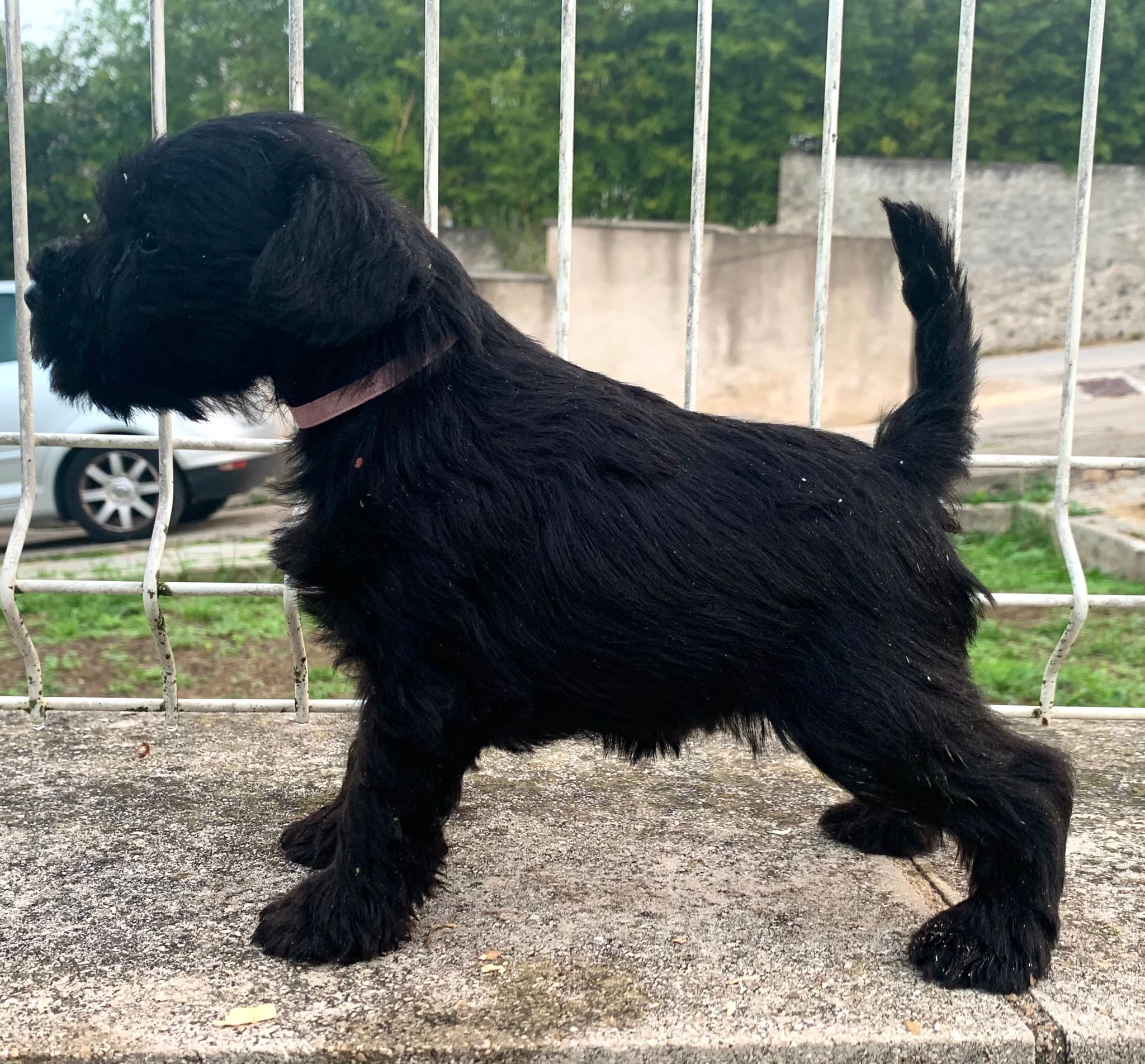
Selective Breeding
MINIATURE SCHNAUZER
Selective breeding of the Miniature Schnauzer is a careful process that aims to maintain and improve the breed, ensuring that the puppies have the desired characteristics and are healthy. Responsible breeders, like RadikalDogs, play a vital role in this process. Here are some important aspects of selective breeding of Miniature Schnauzers:
Parent Selection: In selective breeding of the Miniature Schnauzer, parents are carefully chosen based on their characteristics, temperament, and health. Dogs selected as parents must meet breed standards and be high-quality specimens.
Trait Improvement: Breeders seek to improve breed-specific characteristics such as physical appearance, structure, coat, and temperament. This includes maintaining the typical Miniature Schnauzer beard and whiskers.
Health Testing: Prior to breeding, dogs should undergo health testing to detect genetic or hereditary diseases common to the breed, such as eye problems and immune system diseases. Dogs that do not pass these tests should not be used for breeding.
Pedigree Records: Dogs used in selective breeding are usually registered with recognized dog organisations, ensuring that their lineage can be traced and a record of previous generations is kept.
Early Socialization and Training: Selectively bred puppies are often socialized and trained from an early age to become well-adjusted, well-adjusted dogs.
Aftercare: Responsible breeders, like RADIKALDOGS, maintain a long-term commitment to their puppies' owners, providing guidance and support throughout the dog's life.


